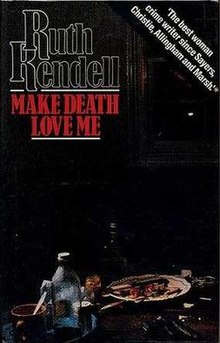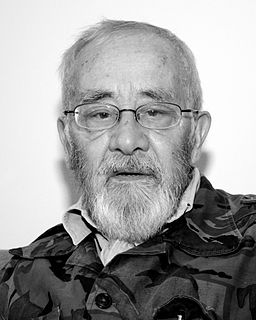
Alan Sillitoe FRSL was an English writer and one of the so-called "angry young men" of the 1950s. He disliked the label, as did most of the other writers to whom it was applied. He is best known for his debut novel Saturday Night and Sunday Morning and his early short story "The Loneliness of the Long Distance Runner", both of which were adapted into films.
Genre fiction, also known as popular fiction, is a term used in the book-trade for fictional works written with the intent of fitting into a specific literary genre, in order to appeal to readers and fans already familiar with that genre.

Back to the Future Part III is a 1990 American science fiction Western film and the final installment of the Back to the Future trilogy. The film was directed by Robert Zemeckis, and stars Michael J. Fox, Christopher Lloyd, Mary Steenburgen, Thomas F. Wilson, and Lea Thompson. The film continues immediately following Back to the Future Part II (1989); while stranded in 1955 during his time travel adventures, Marty McFly (Fox) discovers that his friend Dr. Emmett "Doc" Brown (Lloyd), trapped in 1885, was killed by Buford "Mad Dog" Tannen (Wilson), Biff's great-grandfather. Marty travels to 1885 to rescue Doc and return once again to 1985, but matters are complicated when Doc falls in love with Clara Clayton (Steenburgen).
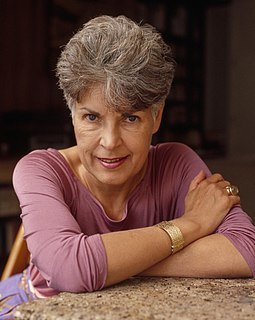
Ruth Barbara Rendell, Baroness Rendell of Babergh, was an English author of thrillers and psychological murder mysteries.

George Morris Baker, MBE was an English actor and writer. He was best known for portraying Tiberius in I, Claudius, and Inspector Wexford in The Ruth Rendell Mysteries.

Richard Stanford Cox, known professionally as Dick Sargent, was an American actor, notable as the second actor to portray Darrin Stephens on ABC's fantasy situation comedy Bewitched. He took the name Dick Sargent from a Saturday Evening Post illustrator/artist of the same name.

Joyce Johnson is an American author of fiction and nonfiction. She was born Joyce Glassman in 1935 to a Jewish family in New York City and raised in the Morningside Heights neighborhood of Manhattan, a few blocks from the apartment of Joan Vollmer Adams where William Burroughs, Allen Ginsberg and Jack Kerouac lived from 1944 to 1946. She was a child actress and appeared in the Broadway production of I Remember Mama, which she writes about in her 2004 memoir Missing Men.
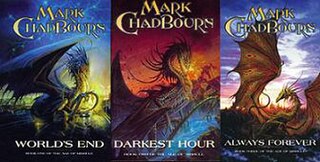
The Age of Misrule is a three-book modern fantasy novel series, written by Mark Chadbourn. It is set in Britain and the faery Otherworld around the beginning of the third millennium.

Shiloh is a Newbery Medal-winning children's novel by Phyllis Reynolds Naylor published in 1991. The 65th book by Naylor, it is the first in a quartet about a young boy and the title character, an abused dog. Naylor decided to write Shiloh after an emotionally taxing experience in West Virginia where she encountered an abused dog.
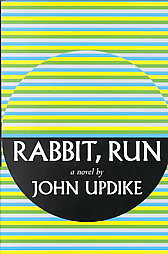
Rabbit, Run is a 1960 novel by John Updike. The novel depicts three months in the life of a 26-year-old former high school basketball player named Harry "Rabbit" Angstrom who is trapped in a loveless marriage and a boring sales job, and his attempts to escape the constraints of his life. It spawned several sequels, including Rabbit Redux, Rabbit is Rich and Rabbit at Rest, as well as a related 2001 novella, Rabbit Remembered. In these novels, Updike takes a comical and retrospective look at the relentless questing life of Rabbit against the background of the major events of the latter half of the 20th century.
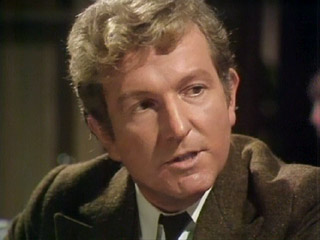
Keith Barron was an English actor and television presenter who appeared in films and on television from 1961 until 2017. His television roles included the police drama The Odd Man, the sitcom Duty Free, and Gregory Wilmot in Upstairs, Downstairs.
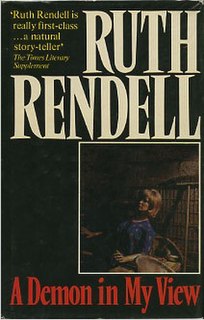
A Demon in My View is a novel by British author Ruth Rendell. First published in 1976, it won the CWA Gold Dagger for Best Crime Novel of the Year, gaining Rendell the first of six Dagger awards she received during her career, more than any other writer.

Talking to Strange Men is a 1987 novel by British writer Ruth Rendell.
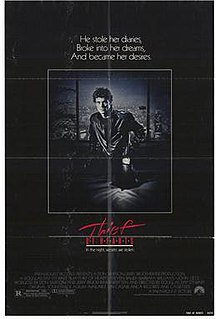
Thief of Hearts is a 1984 American erotic drama film produced by Don Simpson and Jerry Bruckheimer. It was written and directed by Douglas Day Stewart.
Scott Spencer is an American author who has written thirteen novels. He also wrote the screenplay for the 1993 movie Father Hood. Two of Spencer's novels, Endless Love and Waking the Dead, have been adapted into films. Endless Love was first adapted into a motion picture by Franco Zeffirelli in 1981, and a second adaptation by Shana Feste was released in 2014. Waking the Dead was produced by Jodie Foster and directed by Keith Gordon in 2000. The novels Endless Love and A Ship Made of Paper have both been nominated for the National Book Award, with Endless Love selling over 2 million copies. Spencer has heavily panned both film adaptations of Endless Love.
Hutchinson Novellas was a series of short novels published by the Hutchinson Group in the United Kingdom and Australia in the late 1980s. The books were also published as The Harper Short Novel Series in the United States.
Dream worlds are a commonly used plot device in fictional works, most notably in science fiction and fantasy fiction. The use of a dream world creates a situation whereby a character is placed in a marvellous and unpredictable environment and must overcome several personal problems to leave it. The dream world also commonly serves to teach some moral or religious lessons to the character experiencing it – a lesson that the other characters will be unaware of, but one that will influence decisions made regarding them. When the character is reintroduced into the real world, the question arises as to what exactly constitutes reality due to the vivid recollection and experiences of the dream world.

Lolita is a 1955 novel written by Russian-American novelist Vladimir Nabokov. The novel is notable for its controversial subject: the protagonist and unreliable narrator, a middle-aged literature professor under the pseudonym Humbert Humbert, is obsessed with a 12-year-old American girl, Dolores Haze, whom he sexually molests after becoming her stepfather. "Lolita" is his private nickname for Dolores. The novel was originally written in English and first published in Paris in 1955 by Olympia Press.
Xianxia, directly translated to 'immortal heroes' is a genre of Chinese fantasy heavily inspired by Taoism and influenced by Chinese mythology, Chan Buddhism, Chinese martial arts, traditional Chinese medicine, Chinese folk religion, Chinese alchemy and other traditional Chinese elements.
